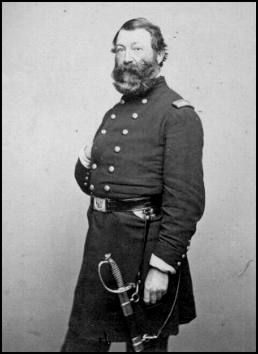John Cochrane (politician) facts for kids
Quick facts for kids
John Cochrane
|
|
|---|---|
 |
|
| 28th Attorney General of New York | |
| In office January 1, 1864 – December 31, 1865 |
|
| Governor | Horatio Seymour Reuben Fenton |
| Preceded by | Daniel S. Dickinson |
| Succeeded by | John H. Martindale |
| Member of the U.S. House of Representatives from New York's 6th district |
|
| In office March 4, 1857 – March 3, 1861 |
|
| Preceded by | John Wheeler |
| Succeeded by | Frederick A. Conkling |
| Personal details | |
| Born | August 27, 1813 Palatine, New York |
| Died | February 7, 1898 (aged 84) New York City, New York |
| Political party | Democratic |
| Alma mater | Hamilton College |
| Military service | |
| Allegiance | |
| Branch/service | Union Army |
| Years of service | 1861–1863 |
| Rank | |
| Commands | 65th New York Volunteer Infantry |
| Battles/wars | American Civil War |
John Cochrane was an important American figure. He was born on August 27, 1813, in Palatine, New York. He passed away on February 7, 1898, in Manhattan, New York City. John Cochrane worked as a lawyer, a general in the Union Army, and a politician.
Contents
Early Life and Education
John Cochrane's grandfather, John Cochran, was a top doctor. He served as the Surgeon General of the Continental Army during the American Revolution. John Cochrane first attended Union College. Later, he graduated from Hamilton College in 1831. While at Union College, he joined the Sigma Phi Society. After college, he studied law. He became a lawyer in 1834. He worked in Oswego and Schenectady. Later, he moved to New York City.
Political and Military Career
Early Political Steps
In 1852, John Cochrane helped Franklin Pierce become president. President Pierce then appointed him Surveyor of the Port of New York in 1853. Cochrane was a member of the Democratic Party. He served in the United States Congress from 1857 to 1861. During his time in Congress, he spoke often about important topics. These included land reform and government income.
Service in the Civil War
When the American Civil War began, John Cochrane joined the Union Army. He became a colonel, leading the 65th New York Volunteer Infantry. This group was also known as the 1st United States Chasseurs. He commanded them during the Peninsular Campaign. In July 1862, he was promoted to brigadier general. He led a brigade under General John Newton. This brigade was part of the VI Corps. They were present at the Battle of Fredericksburg. Cochrane left the army in February 1863. This was likely due to political reasons.
Later Political Roles
From 1864 to 1865, Cochrane served as the New York State Attorney General. He was elected as part of the Union ticket. This group included Republicans and War Democrats. In 1864, he was nominated for Vice President. He ran with John C. Frémont for the Radical Democracy Party. However, Frémont soon withdrew from the race. Cochrane was also a delegate at the 1868 Republican National Convention.
In 1872, he led the New York group at the Liberal Republican Convention. This meeting was held in Cincinnati. He played a key role in helping Horace Greeley get nominated for president.
After this, he rejoined the Democratic Party. He became a leader, known as a Sachem, in Tammany Hall. From 1872 to 1873, he was President of the Common Council of New York City. During this time, he acted as Mayor of New York. This happened when Mayor A. Oakey Hall temporarily stepped down during an investigation.
Personal Life and Legacy
John Cochrane was a member of the Society of the Cincinnati. He passed away at his home in Manhattan. He was buried at Albany Rural Cemetery in Menands, New York.
See also
 In Spanish: John Cochrane para niños
In Spanish: John Cochrane para niños
 | Misty Copeland |
 | Raven Wilkinson |
 | Debra Austin |
 | Aesha Ash |

